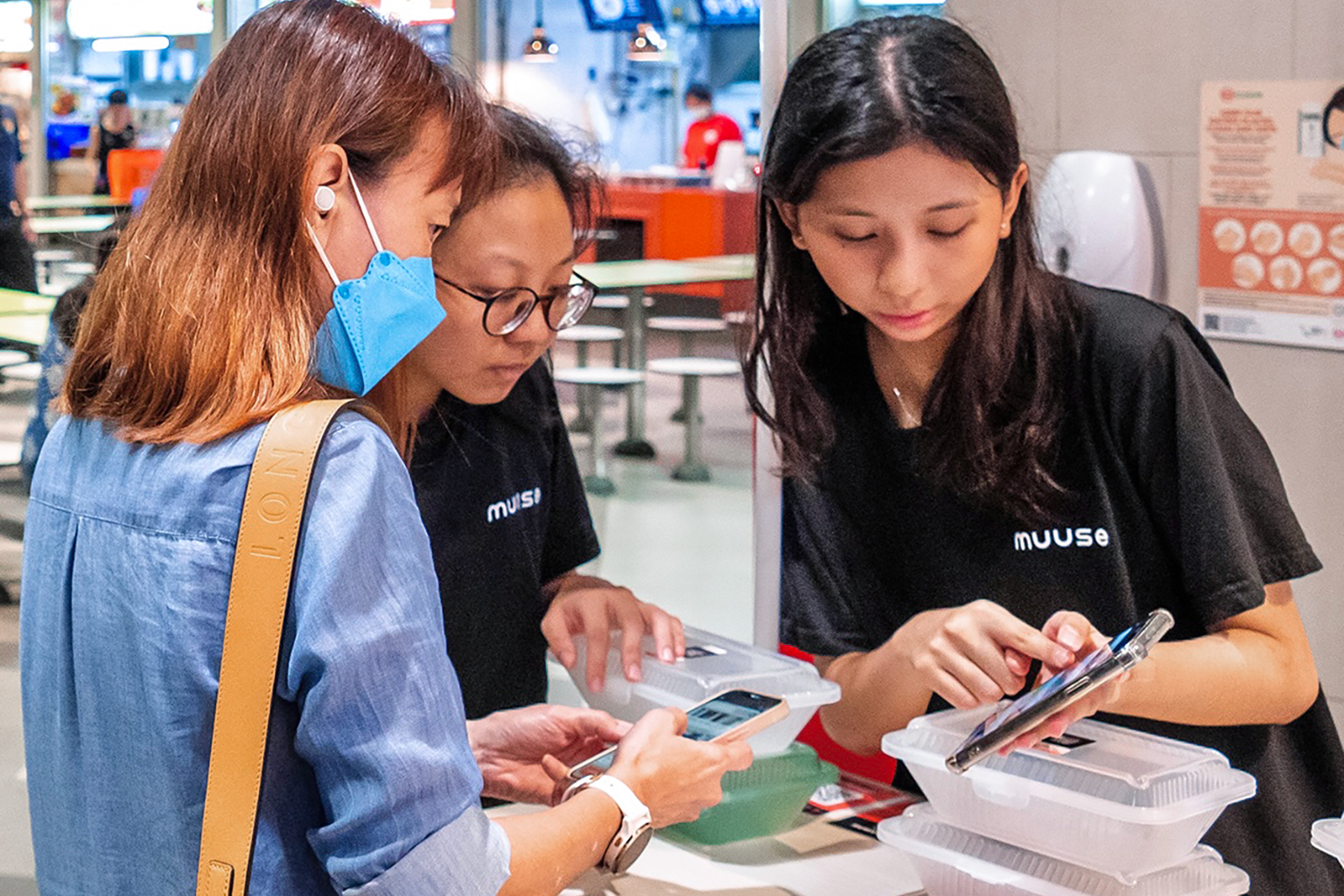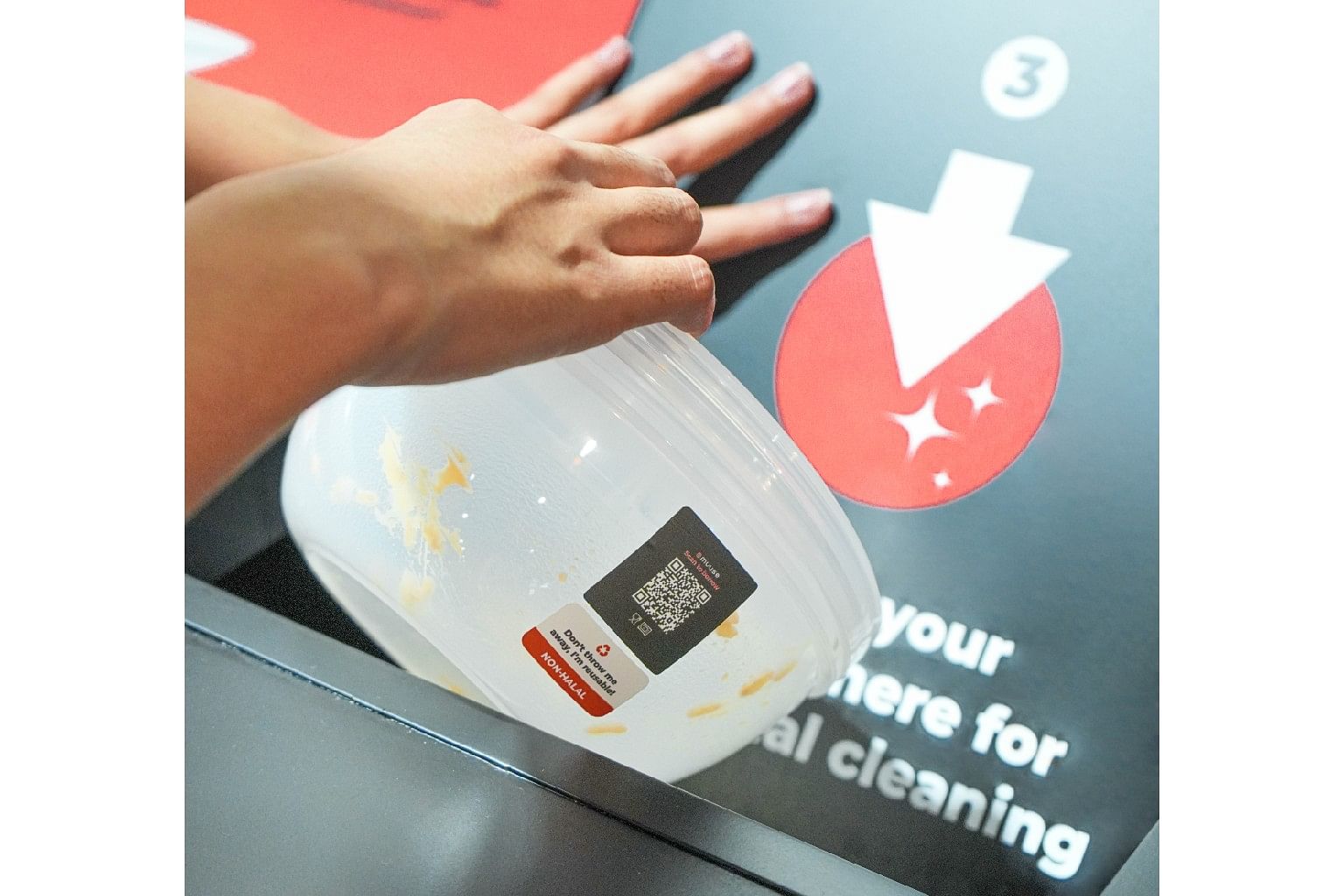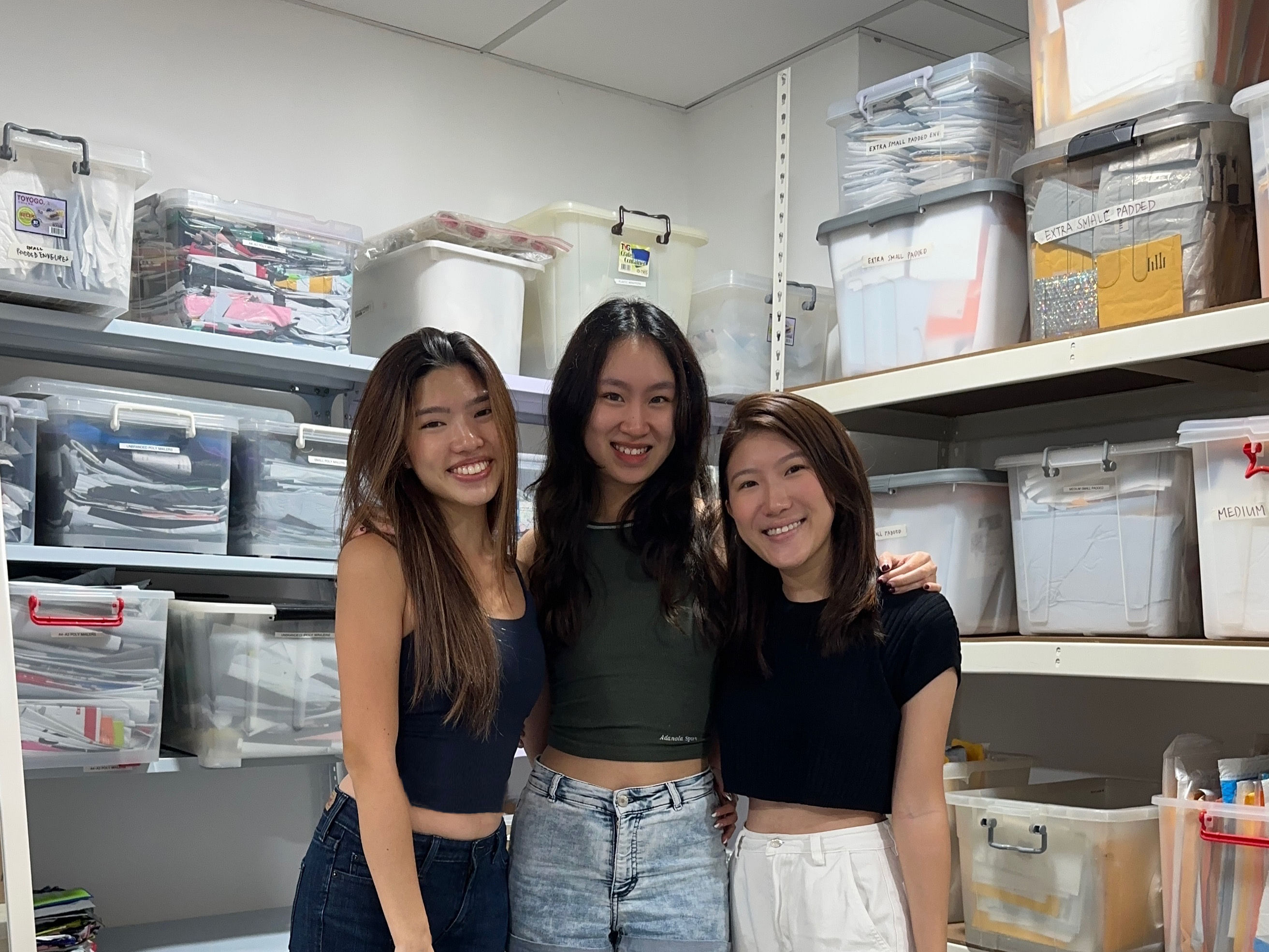BRANDED CONTENT
Free reusable containers: Green habits to cut plastic waste start at this hawker centre
It's a loan-and-return system set up by Muuse, which joins the charge of social enterprises aiming to curb the use of disposables and food wastage

Diners can rent Muuse’s reusable food containers for free in selected hawker centres. PHOTO: MSE
When part-time teacher Catherine Lim, 56, buys her dinner from the hawker centre at Our Tampines Hub, she would first borrow a reusable container at the centre.
Since November last year, Singapore start-up Muuse – short for ‘multiple use’ – has loaned its reusable containers for free at the centre to help patrons reduce their use of disposable takeaway boxes. More than 400 people have borrowed the containers over 6,000 times in total.
The project, slated to last until June 2023, is in partnership with the FairPrice Group’s Kopitiam, which manages the hawker centre, and supported by the Ministry of Sustainability and the Environment’s SG Eco Fund, which advances green initiatives that involve the community.
Wanting to do her part for the environment, Ms Lim started using the Muuse boxes in December last year. Each time she uses the recyclables, she also saves the 30 cents fee levied by food stalls for each disposable takeaway box. She adds that the Muuse system makes it easy for her to cut the disposable boxes from her routine.
Muuse provides containers specifically for halal food too, and professionally cleans all of the boxes after their return. “Making reusables accessible for different communities is important to us, especially at hawker centres,” says Muuse brand and marketing manager Marissa Noor Azlan.

As Singapore strives to curb its waste, such innovations and green habits are key to its success, particularly in tackling Singapore’s two major waste streams of disposables and food waste. Disposables include food packaging and styrofoam boxes, plastic bags and single-use cutlery.
Cutting waste sent to last remaining landfill
From 2019 to 2021, Singapore’s households and stores binned 200 million kg of disposables annually, amounting to 23,000kg an hour, 400kg a minute and 6kg every second. In 2021, the country generated 817 million kg of food waste, equivalent to two bowls of rice per person per day, or the weight of around 56,000 double-decker buses.
Waste in Singapore is incinerated at four waste-to-energy plants, reducing the volume of solid waste by 90 per cent. Still, if nothing is done to change Singapore’s rate of waste generation, Semakau Landfill, its sole landfill, will be completely filled by 2035.
This is why the Government aims to cut the waste sent to the landfill by 20 per cent per person per day by 2026, and by another 10 per cent by 2030, thus prolonging the landfill’s lifespan. To encourage the public to reduce waste, the National Environment Agency launched the Say YES to Waste Less campaign. Since 2019, the annual campaign seeks to encourage a sustainable lifestyle by reducing food wastage and the use of disposables, and to urge everyone to play their part.
Besides relying on the Muuse boxes, for example, Ms Lim asks for smaller food portions when she is not as hungry to minimise wastage. She goes grocery shopping with reusable bags and sorts her trash for recycling. She also composts organic waste.
Making good use of surplus food
Ms Lin Qing Hui, in her 30s, is another person committed to making a difference to Singapore’s green journey. When she saw a cleaner in a mall throw away a large bin of unsold bread from a bakery in 2018, she knew she had to take action.

Working with like-minded friends and acquaintances, she began to approach eateries and businesses likely to have unsold food, to organise its collection and redistribution. Volunteers picked up the food and distributed it to those in their community.
Today, Divert for 2nd Life (D2L.sg), the group she founded, has about 300 volunteers who rescue about 500kg of unsold food per day, saving the equivalent of about 35,700 meals per month to benefit over 6,000 families. “We handle everything from cooked food to packaged food, from wholesalers, retailers, grocers and more,” she shares.
New volunteers get training on how to collect food, assess its edibility and redistribute it, and more. They list the food on GoodHood.SG, a homegrown app for neighbours in various areas to share items and services, for greater transparency. She adds: “It’s easier for us to track and show businesses where their food goes, and quantify our impact.”

With D2L.sg’s data on their unsold food, some businesses have cut their production, reducing waste upstream. D2L.sg educates others on how to curb food wastage too, by buying and ordering just enough, turning fat trimmings from meat into cooking oil, and more.
Apart from overseeing D2L.sg, Ms Lin walks the talk in her daily life. “I eat surplus food whenever I can, so I can share my experience with others, use everything in my fridge, make cleaning and other supplies from some inedible food waste, and compost what I cannot use. We can do so much to tackle food waste.”
Cutting packaging waste by reusing them
For those who shop online, donating the envelopes and bubble wrap often used for deliveries is another way to minimise disposable waste. In 2020, university students Rachel Han, Rachel Lee and Puan Xin set up social enterprise Package Pals to collect packaging materials and work with businesses to reuse them, after seeing more packaging waste due to e-commerce.

People can drop off used, A4-size or larger plastic and paper envelopes, padded envelopes and bubble wrap at two collection points, located in Our Tampines Hub and The Sustainability Project store in Bukit Batok, or mail them to Package Pals.
The group’s co-founders and volunteers sort the materials at its office in Tai Seng. They also hold workshops and events where they share more about their work, invite participants to help, and raise awareness of the problems caused by packaging waste. They’ve also partnered organisations like SUN-DAC, where clients help sort packaging as part of their occupational therapy.
Ms Han, 21, explains: “We started Package Pals partly to support small businesses that want to be sustainable. At the moment, sustainable packaging can be expensive unless you order in bulk. Small businesses don’t have enough customers to do that. What we do enables people to reuse their packaging, and empowers businesses to go green.”
In 2021, Package Pals redirected about 3,000 poly mailers, 3,000 padded ones, over 1,000 pieces of bubble wrap and over 100 paper envelopes.

Both Ms Han and Ms Puan, 21, have made changes in their daily lives to reduce waste too. Ms Han shares: “I use reusable containers and cups, and minimise what I buy overall. If I really need something, I try to get it second-hand. For clothes, for example, I go to thrift stores or just swap clothes with friends.
“It’s about practising conscious consumption and asking yourself whether you really need something,” Ms Puan says.



